Text
belgiumandotheradventures
What I do after work every day

1K notes
·
View notes
Photo
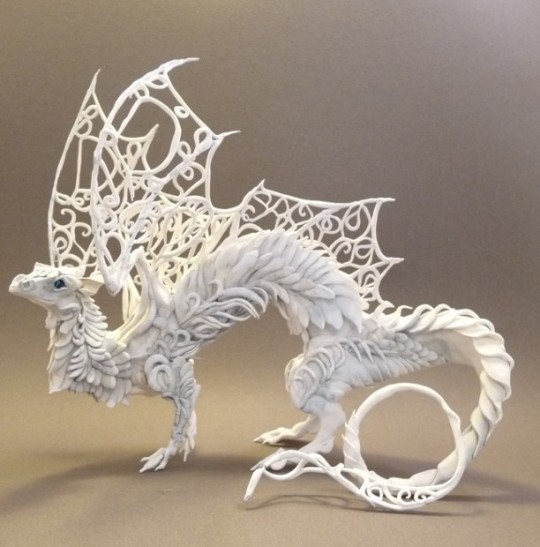
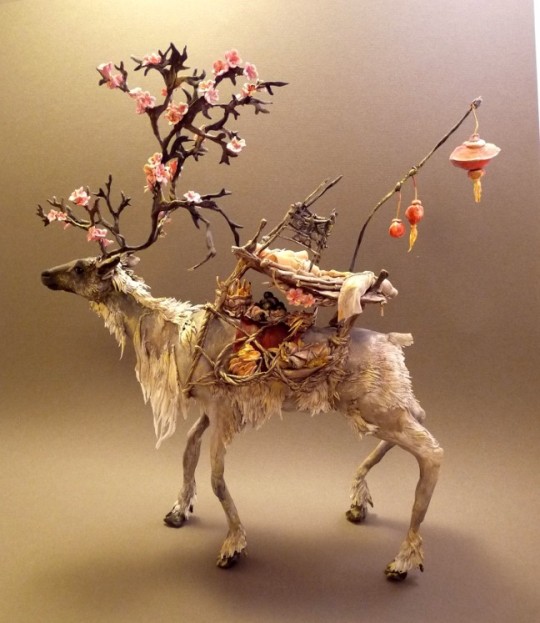
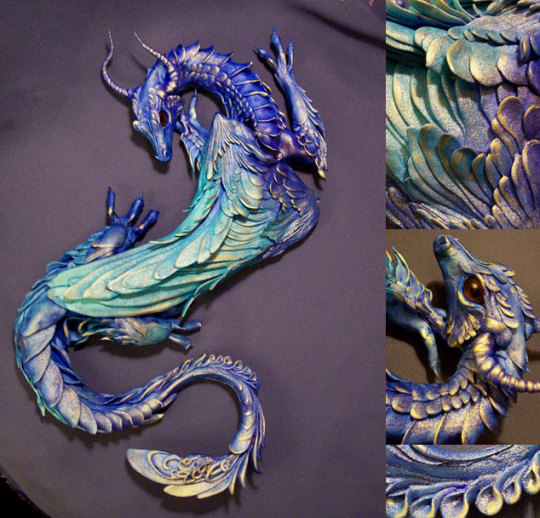
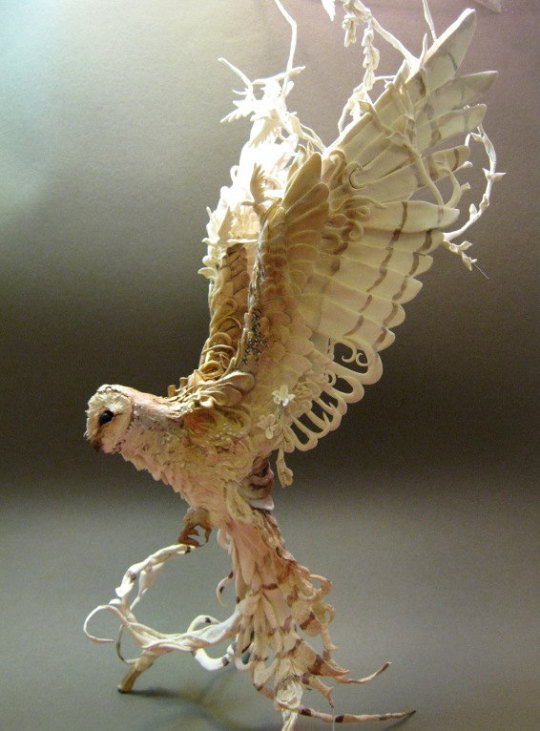
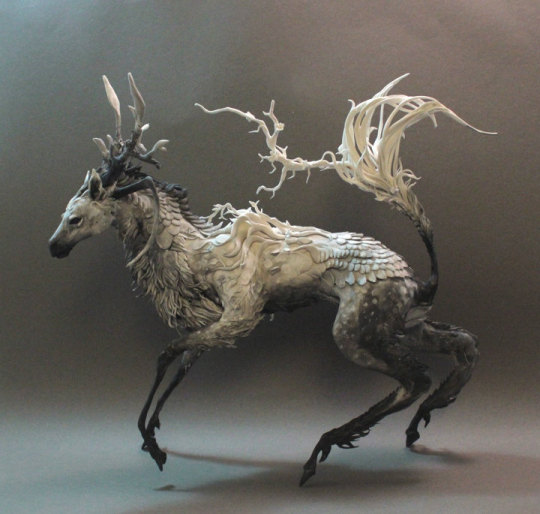

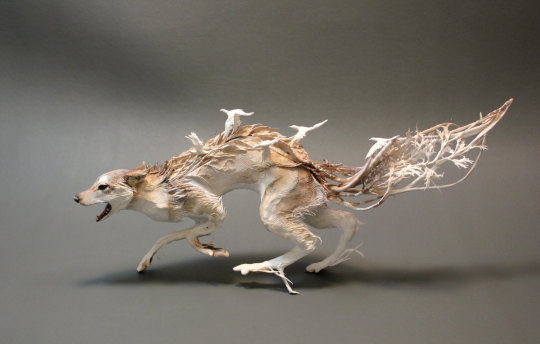
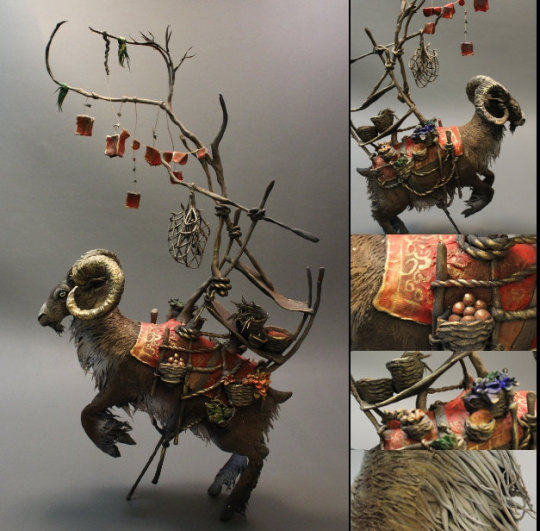


Mixed media sculptures by Creatures from El. (Etsy / Deviantart)
81K notes
·
View notes
Text
The first time we heard Ladino :)
I forgot to share this when I came back from Israel. Okay, so after the diaspora, the Jewish communities abroad picked up culture and language influence from the places they resided in for generations. For the Ashkenazi Jews, they developed a dialect which mixed German and Hebrew. For the Sephardim (Jews from Morocco and Spain, i.a.), they mixed Spanish and Hebrew and formed a dialect called Ladino.
When my mom arrived at the airport in Tel Aviv, Israel to visit me for 3 weeks, an Israeli started speaking to her, and her jaw dropped in awe; she was completely speechless! My brother asked her, "Are you okay? What happened?" The person had spoken to my mother in Ladino, and my mother, a native Spanish speaker herself, said that it sounded like Shakespearean Spanish (really really really old fashioned Spanish) with a few Hebrew words. She was so shocked when she heard it and so surprised that she was able to understand about 90% of it. Isn't it amazing how language and culture, as different and distinct as they are, can really bring the world closer together? :)
Even in music! As Israel searches for its identity (Mediterranean or Middle Eastern), I feel a part of it when I listen to their music and hear my Spanish roots in their music, and their musical roots in my Latin culture as well. There's this thread that I see between Israel and my family--through music, language, culture, and experience, and I'm so happy that I got the opportunity to go. I can't wait to return to the land :)
11 notes
·
View notes
Video
youtube
I got to see this Israeli band in NYC with my adventure buddy!!
Balkan Beat Box!!! >.< :)
1 note
·
View note
Link
I used to listen to a playlist that I found on a website every single day while in Tel Aviv. Unfortunately, the website did not provide details about my favorite song on the playlist. However, I finally asked someone (I think my RA) about the song's origins, and I learned that it was part of a project done by Idan Raichel, a project welcoming the music and culture brought by new immigrants in Israel, the newest wave being the Ethiopan Jews. Below is a little background about the artist himself, and a link to the playlist for all who would like to hear this wonderful fusion of music :) Click the title above to access the link!
Idan Raichel (Hebrew: עידן רייכל, IPA: [ʔiˈdan ˈʁaiχel]; b. September 12, 1977) is an Israeli singer-songwriter and amusician, known for his Idan Raichel Project (Hebrew: הפרוייקט של עידן רייכל), distinctive for its fusion ofelectronics, traditional Hebrew texts, Middle Eastern and Ethiopian music.[1] Prior to the Project, Raichel was akeyboardist, collaborating with artists such as Ivri Lider.
Idan Raichel was born in Kfar Saba, Israel.[2] Raichel began to play the accordion at the age of nine.[2] He was attracted to long hair, gypsy music and tango, and studied jazz piano in high school, which improved his improvisational skills and ability to collaborate with other musicians.[2]
Raichel served in the Israel Defense Forces army band, touring military bases performing covers of Israeli and Western pop hits. As the musical director of the group, he became adept at arrangements and producing live shows.[2]
Following his military service, Raichel became a counselor at a boarding school for immigrants. The school was attended by many young Ethiopian Jews, who introduced him to Ethiopian folk and pop music. Whilst many of people in the school rejected their own cultural traditions in an effort to assimilate into mainstream Israeli society, a small core of teenagers remained fans of Ethiopian music, passing around cassettes of songs by Mahmoud Ahmed,Aster Aweke and Gigi. After hearing them, Raichel began to frequent Ethiopian bars and clubs in Tel Aviv.[2] In April 2007, Raichel traveled with Save a Child's Heart to Rwanda and Ethiopia.
As part of the Idan Raichel project, he brought together 70 musicians from a wide variety of backgrounds, including Ethiopian Jews, Arabs, traditional Yemenite vocalists, a toaster and percussionist from Suriname and a South African singer, among others.[2] Gadi Gidor of Helicon Records recognized the potential of Raichel’s work and signed him up for an album that became an immediate hit.[2]
The Idan Raichel Project in concert in Warszawa, September 2011
Helicon released Raichel's first, eponymous album in 2002. Raichel composed and arranged many of the tracks, performs vocals and plays the keyboard while collaborating with other vocalists and musicians. Hit singles include Boi(בואי / "Come"), Im Telech (אם תלך / "If you go") and M'dab'rim B'sheket (מדברים בשקט / "Speaking Quietly").
(Read more on wikipedia: http://en.wikipedia.org/wiki/Idan_Raichel)
0 notes
Video
youtube
Israeli music in Spanish!!! <3 <3 <3 <3
0 notes
Link
Click the link for the playlist! :D
0 notes
Video
youtube
As my adventure buddy said, this really captures the tone of Israel: hookah and casual music <3
0 notes
Link
Click the title to get to the Haaretz article ^^
#gay rights#homosexual rights#LGBTQ#religion#rabbi#judaism#jewish#israel#israeli#middle east#progressivism#progressive
0 notes
Text
An Iranian Jew who fled the Iranian Revolution
This man shared his own story in person to my class about the Iranian Revolution. He just sent us an article that was written last year about his life. So here it is..the story of Albert Elay Shaltiel.
Written on June 4, 2011, by Yehoshua Ashkenazi.
As a boy, Albert Shaltiel saw how the streets of Iran darkened and how Islam took over every aspect of people's lives. He heard music being played behind closed doors and he saw people being beaten with whips. He escaped through the deserts of Pakistan, but was caught. During his imprisonment he was tortured but still found the fortitude to attempt escape for a second time. This time he went through enemy villages, unsympathetic police forces and bandits. His painful journey ended in New York. Today he lives in Modi'in.
He stands up, bounces from one foot to the other, waves his hands, and shows how he was handcuffed; how they danced to Michael Jackson in secret. He sits down, takes a deep breath and speaks in Hebrew with a Persian/American accent. He flips to another slide in his computerized presentation and starts the whole dance all over again. He gets up, bounces from one foot to the other, waves his arms, jumps, kicks his feet in the air…he is ecstatic.
Albert Shealtiel, 42 years old, is married with one child. He relives his memories of his childhood in Iran and recounts them throughout the world; in Jewish communities, in colleges and universities throughout the United States, in churches and in schools. He combines his own personal experiences with those of the Persian Kingdom over a 3500 year span. He speaks enthusiastically about the Iranian culture, its beauty, its philosophy, science and archeology.
During his lectures he shows pictures that tell a story. He alternately laughs at and is furious with Khomeini, because he is the cause of the Islamic Revolution. He makes fun of Ahmadinejad by calling him the "New Hitler" and mocks him through a series of pictures and caricatures. He shows photos that teach about the culture and art that were once Iran, and immediately following it is a slideshow of the citizenry being beaten and hanged in public city squares.
He loves Iran to the depths of his being but is angry at her for what is happening there today. Listening to him speak you hear the drama unfolding. It seems as though everything is a backdrop for what happened to him when he was a sixteen year old boy; his homeland forcing him to run away from her and escaping death at every turn.
The Shaltiel family is originally from Isfahan, which was the former capital of the Iranian monarchy. The family migrated to Tehran, which ultimately became the capital city. Albert's father, like many Jews, earned his living in textiles and also invested in real estate. They were affluent and lived comfortably. In 1969 Albert was born, the fourth of five children at the Doctor Sapir Hospital in Tehran. Above the entrance to the Jewish hospital is a sign that reads "Love thy neighbor as thyself". About 90% of the children in the city were born in this hospital and it is still in operation today. In those days, the Shah, the king of Iran, Mohammad Reza Shah Pahlavi, ruled with a civil constitution and no religious oppression. Israel and Iran had an amicable and peaceful relationship. The Shah would travel to Israel for medical treatments and likewise, the Shaltiel family would go there for visits and return with holy books and pictures of Moshe Dayan and Eli Cohen, Our man in Damascus.
Albert and his siblings studied at two schools, "Gange Danesh" and "Otsar Hatorah" that were affiliated with the Alliance Francis chain. They also attended the "Khalutz" youth movement which was active for several years before and which even had Israeli flags and maps hanging. The underlying ideology was the dream of making aliyah.
But there was something else in the background. Something dark and eerie that began to permeate the air in Iran. Ayatollah Khomeini, in exile in Iraq and after in France began to gain support. The national incitement against the United States and Israel began to spread to the streets of the cities and revolution was in the air. Those who understood what was happening began to pack their belongings: rugs, expensive furniture, jewelry, stacks of dollars. With these items, they were able to begin new lives with economic security in Los Angeles and in Israel.
In 1978 when Albert Shaltiel is nine, the life he knew in Iran ceased to exist. Everything was black. The nights were filled with arrests, streets filled with tanks, screams of "Allah Akbar" (God is Great). The streets teemed with fear. The Jews were cast with a double whammy: They were also Jews and also Israelis that identified with the greatest enemy of all, the United States of America.
Blood in the Streets
"It was Friday night, the Sabbath eve, Albert reminisces, when we were in the synagogue along with the congregation of 500-700 fellow worshippers. Suddenly, there was a loud noise of breaking glass. After a few minutes a couple of the men returned with blood on their bodies. They had tried to protect the synagogue when the police arrived. I remember many burning tires, smoke and soot. You could smell the fear and feel the message of the Islamic revolution. It was like election eve only ten times worse. On all the walls and buildings were pictures and posters of the Ayatollah. For two years, 365 days per year and 24/7 was the constant chirping of propaganda; in the newspapers on the radio, and on television. Revolutionary songs, pictures of the jihad, and the grand prize of all, the 72 virgins awaiting the martyrs in the Garden of Eden. This was the first time this imagery was used. It was Satan's work. The revolution already had a fertile base and one wintry day, the beloved Shah left the country.
Two years passed since the start of the Revolution and a different enemy wages war. Sadam Hussein sends the Iraqi army to war with Iran. This begins a war with no distinctions. Millions of young people, teens and children are sent to the Front. The ideology is strengthened particularly amongst the villagers who are ignorant and uneducated. Each village volunteers hundreds and thousands of its children to the blood saturated battlefield. This ideology caused too much bloodshed, created too many lies, and a whole lot of nothing, in Shaltiel's opinion.
At a certain point, the older Jews were drafted into the army. I was already a high school student in 1985, but found myself in army drills. The high school, which was affiliated with the Alliance Francaise chain, included in its population Jews and Moslims alike. Prayers like "Shema Yisrael" were discontinued and Jewish studies, which once were taught for 30 hours per week dropped to one hourly class per week. The vice principal would go to the front and return with stories and lessons on operating weapons. When the teacher spoke about the 'Uzi', the Israeli machine gun I raised my hand and said I knew where it was from. My fellow classmates yelled at me that they knew it came from "my country".
The Islamic rule in the streets became a reality; he describes the evolution of events. When I was sixteen I had a motorcycle. My fellow cyclists were a group of twenty, guys and girls. It was forbidden to have mixed socializing. We would go into someone's house, blacken the windows and play Michael Jackson music and break dance. Even though the Extremists tried to curtail all influence of the West, somehow it still reached us. We would have paid dearly if we were caught. The preservation (of Islamic rule) police would catch people not obeying and whip them in the middle of the street. They would travel by motorcycle and encircle a park and start hitting citizens whose attire or hairstyle they didn’t approve of. They would violently force people into vehicles and they were usually never heard from again. There was a tremendous amount of fear and danger in the streets. But within all the fear and danger the underground life was great.
Nowhere to run to
I am going to escape Iran and join my brother, who left Iran before the revolution with the help of Chabad representatives, in New York. But how? To the north is Russia, which isn’t an option. To the west is Iraq, which during the war isn’t a possibility. Once there was a narrow pass through Turkey but that too has been shut. The only options are to go through Afghanistan, which is controlled by the Soviets and the only choice now, Pakistan. Since this is the default option ten times more Jewish kids are going to be at the mercy of greedy smugglers.
In 1987 I said goodbye to my family and took a flight to Zehidan, which was a city on the border of Pakistan, which was populated with Balauchi tribes. From there I continued to Koweyte, near Kandahar where Bin Laden was caught. Everyone looked exactly the same, like Bin Laden. From the relatively modern airport in Tehran I landed on a dirt runway in another world. Everywhere I go I am asked where I am from and who I am. This was not new to me, because it happened in Iran as well, but now I have nowhere to hide or escape to. Somehow I managed to get through the interrogations in the airport and I took a taxi to an address that I had received beforehand. Although it wasn’t exactly an address; I was to wait on a certain corner at 10 in the morning. If no one arrived, I was told to leave, so as not to attract attention, and return every hour on the hour exactly. No one told me there was another intersection with exactly the same street names. So instead, I stood on the wrong corner, with the same name, along with a representative from the smugglers helping me escape. We left and returned. Unfortunately, people started to notice us and started to bother us with offers of drugs, alcohol, and arms. Several hours later, a pickup truck pulled up next to us. In Zehidan, all the vehicles are pickups. There is no other type of vehicle. Several extremely muscular men got out, grabbed us, and threw us inside. We knew these were not the people that we were supposed to meet. We knew we had been arrested.
A strange escape from prison
Because of my name, they immediately realized that I was Jewish and that I did not belong in Zehidan, a remote village on the edge of Iran. They knew that this was the only escape route from Iran. Actually, they really didn’t want me at all, rather they wanted the name of the Jewish man who was my contact and had brought me to Zehidan. I didn’t tell them anything since the man was a good friend's father. Instead I told them I was here to purchase containers of cigarettes and Adidas sneakers. They knew that I was lying and threw me into a cell made of exposed concrete with my hands and feet tied and a sack over my head. I was able to make out the dimensions of the cell by using my head to feel its way along the walls. Several days later, when they removed the sack, and I saw where I was, it occurred to me that I would be better off not seeing the space in which I was imprisoned. Over the next few days, I was severely tortured. I was exposed to a very strong light, like sunlight, 24 hours a day or I was tied into all sorts of impossible positions for hours at a time. After all this I still didn’t reveal to them the identities of the men they wanted, so one night, they came for me and took me for a drive in a pickup truck with my hands and feet bound and my head covered with a sack. They threw me into the back seat. I can hear a gate opening and closing, I sense that were heading to the desert and the fear and anxiety even more. The truck stopped and again I hear a gate opening and closing and someone pulls me out. He asks me if I want to drink some water? But I refuse to answer. He then takes my head and puts it under water and holds me down. You have no idea how long you are going to be held underwater or if this is the end. He finally lifted my head out, and I breathed heavily and again he stuck my head under water. He repeats this seven or eight more times. I think I might have fainted. The next thing I remember is sand, being cold and wet and in a very small room. The door slammed and here I am in a new place being asked questions with my responses being written down. This was the moment that I broke. I didn’t reveal any names but I admitted that I crossed the border in order to escape.
Then they threw me into a different cell. I realize that I am no longer alone. There are twenty men there and they are all looking at me, a sixteen year old boy. They seem threatening; in their galbieyehs (robes) and long beards; to me they look astonishingly similar to Bin Laden.
I sit bent over with fear. I try not to draw attention to myself, which is nearly impossible since they keep hurling questions at me in an attempt to find out my name and background. I tell them my name and they immediately recognize that the name is Jewish. To my surprise, they know the term "Beney Israel" and the custom of lighting Sabbath candles and Brith Milla (ritual circumcision)! When they realized that I was an Israeli (Jewish) they treated me like a prince! After a month of walking winding roads and being tortured I slept for the first time several hours straight.
I woke up to a deafening sound; booming and screeching. Two rounds of bullets being fired. Members of their tribe came to get them out. A truck crashes into a wall and is overturned. Everyone jumps in and I get pulled in with them. They arranged a flight back to Tehran for me, but I knew my mission was not yet accomplished.
Later, when I learned about the ten missing tribes and how they supposedly live in these areas that I was in, it made me believe that the men who saved me from prison are part of these tribes of Israel.
2nd attempted escape
We flew three or four hours until we were far into the desert. On the way we added five more to our group, three of whom were Jews. The driver told us he was going to speed up to 200 kph (110 mph) and we should hold hands because he wouldn’t stop or go back even if someone fell out. We drove quickly towards the mountains. During the day we slept in hidden tunnels and at night we drove. On the way we passed many smugglers. We spent many long days on camels and dark nights walking in the desert and climbing mountains, trying to avoid the police and bandits along the way, since the pickup truck had large amounts of cash, weapons, and opium hidden that they were smuggling from village to village and from hand to hand. The pickup goes over hills and crosses rivers. The nights are dark and cold. We run into people with guns who make everyone get out and won't less us pass until they receive approval. There were countless days of terror thinking that we wouldn’t survive, until finally we arrive in the city of Kowaite.
We quickly go to the UN office, which is quite familiar with Jews from Iran showing up on their doorstep. They gave each of us a refugee card and hid us in a safe house in the city. Then we took another flight, this time to Karachi, to the Imperial Hotel. We got into a taxi, but little did we know that we were headed to another crisis. The cab driver was already familiar with this type of "merchandise" and he took us directly to the police station.
Oy! It cost us so much money to get out of there.
In Krachi
Some of the Jews in the group, which had increased in numbers, decided to make aliyah to Israel and some chose to go to America. I wanted to be with my brother. I had to spend an entire year in Vienna waiting for a visa to the US but in the spring of 1989 I finally arrived in New York.
In the meantime, I found out that the Iranian government had begun looking for me. One night my parents received a knock on the door and my father was asked where the boy was. My father told them that he hadn’t seen me in over a year that I had been selling drugs and ran away, but they arrested him on the spot. After a lengthy interrogation, he was released. However, a week later he was required to return to the police station. During that week, he disappeared. He left shopping malls and land behind. He paid a lot of money to make aliyah to Israel.
In 2000 Shaltiel made aliyah from LA and six years ago he moved to Modiin. After an extended stay in New York, I became more aware of Israel and since then I travel back and forth between the two. I love Benjamin Netanyahu and his leadership style. I find him to be charismatic and I am drawn to his personality and to the books he has written; I knew he would return to the prime minister's office even though he lost in the elections back then. I believe that just like Joseph (from the Bible) knew how to help the nations recover from an economic crisis, so too does Netanyahu. He has saved the nation from economic ruin and has led her to the forefront of the international economic scene. I learned about my nation's history and I started to learn Jewish philosophy and Kabbalah. I am about to open a spiritual awareness school in Los Angeles. In the last few years I have started to collect contributions in Israel and abroad for the "Ilai Fund" which we created to assist special needs' children. The fund is named for our son Ilai, who was born healthy, smart and beautiful after years of prayer.
#iran#persia#Israel#jewish#Jew#diaspora#return#aliyah#iranian revolution#welcome home#home#israeli#persian jew
0 notes
Note
What is the Israeli attitude to terrorism in other countries? How do they view the long history of conflict that shook Northern Ireland and the greater Basque region of Spain? Do they even relate their own position to that of others?
I am not sure how they view the conflicts of Northern Ireland and the Basque region. I do know that the man who was the main negotiator that mediated very successfully the conflict of Northern Ireland tried to offer his services to the Israeli-Palestinian conflict. However, he was very unsuccessful.. The problems involved are completely different, and have different roots completely unrelatable to the Northern Ireland conflict.
Israel does relate its own position very much to that of others, though. It is one of the primary reasons why it opened its doors to the African refugees. Israel is very conscientious of conflict around the world because its own people that are scattered around the world still suffer from conflict.
For instance, Israel actually launched a large secret Mossad mission to save the Ethiopian Jews that were under persecution. They went into Ethiopia and brought them to the Holy Land. As another example, I got to meet an Iranian Jew that fled persecution during the Iranian Revolution. He had a CRAZY story, a lot of torture and warlords he had to encounter in order to flee Iran.
What's interesting about Israel is that it is conscientious of both sides of the Israeli and Palestinian conflict. AND, it's also very admitting to its history against "the other," the Palestinian. I guess the conflict Israel's most relates to is that of Cyprus, which has the only divided capital in the world. Cyprus' conflict involved the tension between two groups, the Turkish Cypriots of the North and the Greek Cypriots of the South. But while Cyprus was trying to come up with a solution, Turkey invaded and began an occupation of Northern Cyprus and formed the Republic of Northern Cyprus (now only recognized by Turkey). The politics are now skewed in the North because the population is skewed. Therefore, the Turkish Cypriots feel as if they have no voice in the matter... First off, the Turkish Cypriots don't want the Turks there. They feel as though Turkey sent their degenerates into their neighborhoods... Second off, culturally, because the Turkish Cypriots have been in Cyprus so long, they have more in common, culturally, with the Greek Cypriots than with Turkey. Third off, they want peace and to be a part of Cyprus again not only because of culture, but because the economy was so good before Turkey invaded. Now it's shit. When you cross into the buffer zone, you can see ghost towns that were once Greek Cypriot neighborhoods or mixed neighborhoods. The people are poor. The place looks in shams, completely decrepit and falling apart. Because it's so poor, the education is poor. And so the Turkish Cypriots actually get visas for their kids to go to school in Southern Cyprus, where the Greek Cypriots reside. The Turkish Cypriot kids don't experience any prejudice in the South. The only prejudice that you really see is the Greek Cypriot's anger against Turkey. The Turks are very obnoxious. One day, the Greek Cypriots woke up to go stare at a local mountain on the Turkish Cypriot side near the U.N. Bufferzone Border and saw that the Turks had painted a HUGE Turkish Cypriot flag, which, by the way, is the exact same flag as Turkey's but inverted in colors (it is white in background with red lines) on the entire mountain on these plaques/boards. One day, the Greek Cypriots saw these white boards being laid out on the mountain. It took a while for them to be laid out (not sure how long, though), but all of the sudden, one day, the boards were flipped over (or painted quickly), and the Greek Cypriots that woke up near the bufferzone, were staring at a huge Turkish Cypriot flag, a reminder of Turkish occupation and all the deaths of their family members that occurred as a result of the Turks invading...
Here are pictures of the Turkish flag on the mountain, the top one gives you a view of Turkish Cyprus (very much in shams).
Back to Israel, the country is very conscientious that it is in fact impeding an occupation on the West Bank territories. It formally admits that. But when countries like Turkey gang up on Israel about it, Israel gets defensive, because Turkey denies having any fault in the harm its caused Greek Cypriots and denies that it is actually occupying the Republic of Northern Cyprus. Just as the Greek Cypriots want to make peace with the Republic of Northern Cyprus, the Israelis want to make peace with Palestine. But neither can because there is no proper leadership of the other side. The palestinian territories are split between the West Bank and Gaza. The Gaza Strip is completely democratically controlled by a terrorist organization (like in its formal government, I mean),and the West Bank is said to be led by the man, Abbas, but really, some people think that it is a puppet figure manipulated (either knowingly or unknowingly) by Hamas... The similarities in of these two conflicts is that it is merely impossible to come up with a solution when there isn't a leader that either believes is the actual leader of the region...
Sorry if this is confusing. Politics can be pretty complicated. But I hope I answered your question to the point where you get the drift of what I'm saying :)
0 notes
Note
You implied in your last writing to me that Ashkenazi are treated differently than other Jewish populations. What are the differences within the Jewish population and what is the general opinion of the Orthodox population when being viewed by the more, shall I say, secular portions of the population?
The Ashkenazi Jews are the first of the crop that entered Israel and started up the nation. After that, there were flows of immigration called "aliyah" of different Jewish populations. When new Jews entered from non-European regions, there was a certain prejudice the Ashkenazi had against them. For instance, they didn't like how the Mizrahi Jews from the Middle East looked and had a more Arab-like culture. As a result, when the new Jewish groups entered, they were kind of plopped in an area of Israel, stripped of their clothes and belongings that looked more Arab, and given plain clothes. But they were given no shelter.... The Ashkenazi had to come to Israel with no shelter. They built it themselves. So they expected the others to do the same, it seems. Today, there isn't much tension between Jews based on color. This is a result of the mandatory army service of every Israeli. A lot of Israeli soldiers I spoke to said that before they entered the army, they had prejudice against different Jewish groups. But once you enter the army, you are stripped of everything and everyone looks the same and you see that there really isn't that much of a difference between people. The army service has Israelized all of the Jews it seems. The kids no longer have as much of an attachment to the places they came from (i.e. Yemen or Russia). They don't speak the mixed dialect of the countries of origin of their parents (just like Yiddish is a mixed language of Hebrew mixed with German, other countries had the same thing...there is a dialect of Spanish mixed with Hebrew...and other dialects that are half Hebrew). Parents of my generation have much more of a connection to where they came from. But people our age, they are "Israeli," not Ashkenazi or Mizrahi, but Israeli.
Nevertheless, the Ashkenazi, who with more money from Europe and have had more establishment here and better circumstances entering the country, are in general more rich in Israel than the other Jewish groups, it seems.
*
*
*
About your question on the Orthodox population, it is important to distinguish the difference between Orthodox and Ultra-Orthodox people. The Orthodox basically dress normally, but very conservatively (the girls wear long skirts). The Ultra-Orthodox are the ones that wear the black hats.
It is also important to understand that the term Jew is varied in Israel. There is the religious Jew, and the ethnic Jew.
Israel's population used to have a majority of Secular Ethnic Jews. But as war and terror increased in Israel, as happens with any other country, people turned to religion. As a result, today, I believe that Secular Ethnic Jews make up 40% of the population.
To get to the point and be very direct, the secular Jews don't really like the Ultra-Orthodox Jews. Not for reasons of prejudice, though. A little background about the Ultra-Orthodox, they don't work. They only study the Torah. And because they are in religious practice, they don't have to join the army. As a result, the rest of the population has to pay for their food and schooling. This was fine at first. The secular ethnic Jews respected them. In fact, they felt like they needed them, especially after the Holocaust and there was a shortage of rabbis and religious clerics.
However, the main population of Jews that are making illegal "outposts" (commonly termed "settlements" on the media...this is incorrect, because settlements have legal status...the media mixes these two terms up to spur attention against Israel so that it gains more readers) are the Ultra-Orthodox Jews. Many secular ethnic Jews think that "the land over the greenline" (West Bank) rightfully belongs to them. But they believe in resuming negotiations with Palestine and understand that realistically, they can't have all of Palestine... But nevertheless, the very religious zionist Ultra-Orthodox move in and set up illegal outposts. While everyone is being cautious, the Ultra-Orthodox are making waves with the Palestinians. And given that the secular ethnic Jews are paying taxes that feed and support them, they are growing tired of supporting them, especially when cost-of-living for the secular ethnic Jews is so high. On top of that, Ultra-Orthodox are the ones making waves BUT don't have to serve in the military... First off, in Israeli society, if you don't serve in the military, you are not accepted. Before, when the Ultra-Orthodox were a small population, they didn't mind that they didn't serve. It was understandable that they were needed in the country. But they've grown so much in population, there is no longer a shortage of religious clerics. A lot of Israelis feel that should join the army now, AND they should work... Israelis want peace. But the Ultra-Orthodox in Israel are making waves and therefore making peace harder to reach.
P.S. As a result of people turning more to religion, it has helped the Ultra-Othodox gain more political leverage in the government, as more political groups are steering more towards their direction. Let it be noted that the country turning to religion doesn't mean that the whole country has become VERY religious, but it has shifted the political scales of all parties and is making Israel appear more Right-winged (religious) on the political scale. Meanwhile, most of the population is actually more towards the middle. Israeli politics is having a similar effect that the U.S. is seeing where the political elite are polarizing and making it appear as though the whole country is split and torn apart, when really, most people are actually moderate.
Message to the students reading this, do not misinterpret the stance of the government (political elite) to be exactly what the entire population wants. This applies for when you look at your own country, the U.S., and other nations (think of Iran...).
0 notes
Note
What other refugee populations are you aware of that are residing in Israel and what is the position of the government to these groups?
"The majority (60%) are from Eritrea. About 25% are from Sudan and a marginal 3-4% are from South Sudan."
Tel Aviv's city government violates the wishes of the country's government by offering municipal services such as language programs and job specialty training (I'm guessing mostly training in construction, since they are used primarily for menial labor).
As for the position of the central government, on the one hand, Israel needs these refugees and also foreign workers (i.e. from the Philippines and other Asian countries), because they need cheap menial labor. Before the second intifada in Israel, Israel used to use Palestinians as workers. But after the second intifada, Palestinians...could not be trusted, they felt, and were thus no longer used as the main source of menial labor. Today, this causes tension between the Arabs and the Africans that reside in Tel Aviv because the Arabs feel as though the Africans stole their jobs. This isn't like the U.S. where white people say Mexicans stole their jobs... Arabs are for the most part poor. And they need work in their fields. There isn't opportunity for them to advance in universities like there is for us in the U.S.. (In fact, in the areas where poorer Israeli Jews AND Arabs live, those districts lack funding necessary to host the last two years of high school, which is necessary to go to college. As a result, there's a bunch of people who are completely unable to go to university).
On the other hand, however, the influx of refugees into Israel is overflowing. The South part of Tel Aviv can no longer host them. It's overpacked, maxed out of its municipal resources for schools and police, and housing prices are driving out locals. As a result, crime rates have skyrocketted, and the town looks entirely decrepit and poor. As a result, the central government of Israel recently issued an order to begin deporting refugees, starting with those from South Sudan, which had to be deported by April 1st. It was a very short notice deportation. Only a week or so's notice. Now, this has caused tension between the refugees themselves. South Sudanese refugees won't even look at the ones from Darfur because they feel that the large presence of Darfurian refugees is ruining the refugee status of other refugees. Although there is stability in South Sudan (not as much violence anymore), family members residing in South Sudan itself are telling the South Sudanese refugees in Israel to not come back! It's dangerous, they say. War will break out soon, they say. In fact, there is still war going on, they say. Israel's solution to the refugee problem is essentially merely to just plop the refugees back... But there is no housing, no food, and no water program for those returning. On top of that, Darfurians that fled the North have taken over the businesses of South Sudan, so there's no work available for the South Sudanese deportees (another reason why there is tension between the South Sudanese refugees in Israel against the Darfurian refugees in Israel).
Although, in numbers, Eritrean refugees outnumber the both South Sudanese and Darfurian refugees, the recent frustration I've seen from the South Sudanese refugees in the few days before their date of deportation are against the Darfurian refugees, probably because the Darfurian refugees affect them both in Israel and at home. In Israel, they outshine them in terms of refugee numbers from the Sudan region. In their their place of origin, the Darfurians that fled to the South have taken over job options in South Sudan).
Another perspective of the government's position on this issue that people see, however, is that Israel wants to begin ousting the refugees not because of the inability to have them in the first place, but because they are racist. Israel is founded upon a homogeneity of Judaism. But like any other country modernizing, the prosper of Israel and its stability in the Middle East region means that people want to flee there. Reasons for this assumption of the central government of Israel are because of signs held up by protest groups in South Tel Aviv. Are Jewish Israeli's afraid that it will lose its Jewishness if it continues to let more non-Jews into the country?
Though there may be evidence of some Jewish Israelis feeling like that, locals know that the real reason is mostly, almost entirely, a result of the city's resources being maxed out. First off, I think it's like 40% of the country's population that is secular, non-Jewish (but they were born to Jewish families). Second off, the primary reason is that there is simply no infrastructure for the refugee program in Israel, mostly because the city and country government disagree on solutions. The central government originally wanted to just plop them all on a kibbutz. But that's not really a viable or fair option, when the refugees feel like they need to work and learn the language so that they can make money for their families. You can't expect a bunch of people to sit up to 7 years on a kibbutz doing nothing but free labor...
However, as a clever Israeli friend pointed out (HDR), maybe the "racist card" is actually being used by, let it be noted, the same government that let them into Israel. Why? "Me thinks the answer lies somewhere to the East where something is happening that no one wants anyone to be interested in. You can hear it between the coughs: Uhm-Pal-Uhm-estinians." lol >:)
I hope this answers your questions. This is a very complicated issue in Israel because the formalities of the issue within Israel itself is complex. In order to understand the issue, I had to interview refugee organizations, research the million visa processes that the refugees have to apply for over time, read Israeli newspaper articles, read Tel Aviv newspapers, ask locals Israelis in both the North and South of Tel Aviv about their thoughts on the issue, ask migrant workers what it was like before and after the refugees entered Israel, and ask different refugees stories about their lives in Israel and about Israel's recent action to deport South Sudanese refugees.
This was a very difficult paper to write. Every time I talked to a new refugee, the conversation began, "All of the sudden, I woke up and my entire (or half of) family was dead." This was a lot of weight to carry whenever I approached this topic.. I had to constantly encounter secondary trauma. After a while, you strangely feel as if these things happen to you. I never came to a conclusion to this topic. In fact, my paper on it for my journalism class lacked a conclusion paragraph. But it's not an issue that you can easily have one for. No issue is, really. Which is why I'm never going to be a journalist lol. But the class did help me learn how to puzzle things together about an issue. But in journalism, you to have a statement sort of about why people should care. In my opinion, journalism should be telling people about all issues of the problem, and then let the people decide on whether they should care or not. I feel as though my professor and I disagreed on this. But, no matter, school is over now :)
I actually wrote a final paper about this topic, this is the one that lacks a conclusion. I will post it up next week.
0 notes
Video
youtube
Shabbat for 2000 (by lilmodololilmod)
Me and my friend Rachel decided to capture our favorite parts of Shabbat in Tel Aviv, which is the weekly Sabbath in Israel from sundown Friday into sundown Saturday. Enjoy :)
0 notes
Video
youtube
In 1953, Prime Minister David Ben-Gurion signed a law that designated Yom HaShoah to be commemorated on the 27th day of the month of Nisan in the Jewish calendar. Every year on that day since, a siren sounds at 10:00 a.m. on Yom HaShoah, announcing a two-minute moment of silence when Israelis halt their activities – drivers even stop and get out of their cars – to commemorate the victims of the Holocaust.
On the eve of Yom HaShoah and the day itself, places of public entertainment are closed by law. In addition on the eve of Yom HaShoah (Wednesday night) ALL shops, cafes bars, convenient stores close and only re-open on Thursday morning. Israeli television airs Holocaust documentaries and Holocaust-related talk shows, and low-key songs are played on the radio. Flags on public buildings are flown at half mast.
0 notes